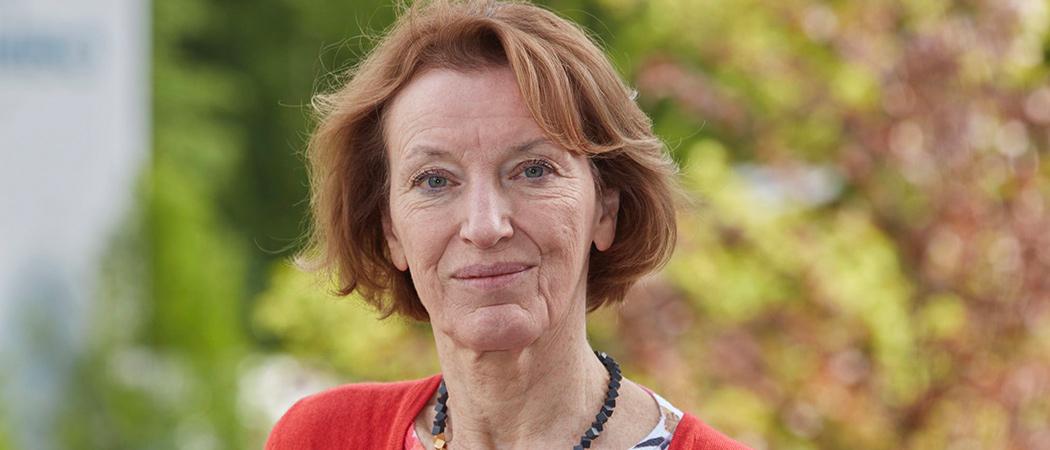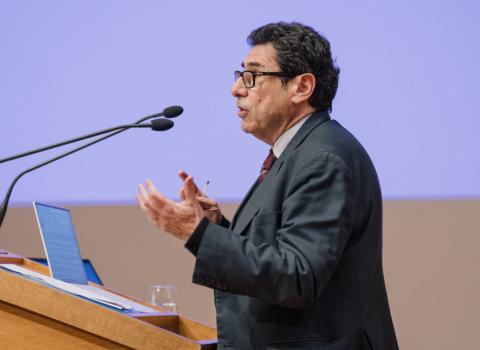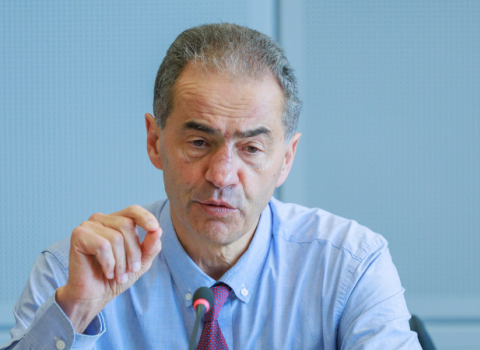It can provide answers, but science alone will not deliver on sustainable development goals, says Maria Leptin in a reality check on ‘scientific populism’

Maria Leptin, President of the European Research Council. Photo: @mleptin / Twitter
Science alone is not guaranteed to save the world from the climate disaster and the other crises it faces, Maria Leptin, president of the European Research Council (ERC) told delegates at the United Nations General Assembly in New York this week.
“I would argue it’s a form of scientific populism to promote the view that science can easily be directed towards political aims and solving the problems of society. If we believe this uncritically, it becomes a problem in itself,” Leptin said.
Leptin, who presides over the EU’s €16 billion basic research programme, took the stage at the assembly to defend the role of bottom-up fundamental research in tackling the many crises facing the world today.
The UN has an ever-growing list of problems to deal with, as António Guterres, UN secretary general told the general assembly on Monday. In particular he highlighted, “Conflicts and climate catastrophe, mistrust and division, poverty, inequality and discrimination, rising costs of food and energy, unemployment and declining incomes, massive displacement and dislocation and the ongoing effects of a global pandemic.”
Science is central to dealing with some of these issues, especially the imminent climate crisis, and to tackle them, governments are shifting science funding to political priorities. One case in point is the ‘missions’ being funded by the EU’s €95.5 billion Horizon Europe, which aim to tackle five key environmental and health goals, including saving the world’s oceans and improving cancer survival rates.
There has also been a change in emphasis in EU-funded public private partnerships, an instrument which has existed since the first EU R&D programme in the 1980s, but which now aims to channel public and private R&D funding towards more challenge-oriented goals, such as climate change and Europe’s technology sovereignty.
“What we are looking at in our research and innovation funding is to direct the funding towards missions and partnerships that would enable us to deliver on the sustainable development goals (SDGs),” said Julien Guerrier, director of the common policy centre at the European Commission’s research and innovation directorate.
Pursue the best ideas
Leptin believes basic science can be used to advance political agendas, but scientific research should not be deliberately oriented towards specific challenges. According to a recent analysis, EU funded research led to the publication of over 3,000 papers on the SARS-CoV-2 virus that causes COVID-19. A lot of these arose from projects supported by EU funding for health research, but the second biggest contributor was ERC-funded projects, with 607 papers.
Similarly, of the 2,500 EU-funded publications referenced by the Intergovernmental Panel on Climate Change, one third are based on ERC projects.
“The report therefore refutes the view that you have to tell researchers what to do, because otherwise they will never get down to practical matters and urgent problems. Nothing is further from the truth,” Leptin said. “So my message to all research policymakers is to trust researchers and give them the means to pursue their best ideas.”
The ERC is often touted as one of the EU’s biggest research success stories, having awarded grants to nine Nobel Prize winners since 2007. However, the rest of the €95.5 billion Horizon Europe research programme has a more top-down approach, with grants awarded for projects that meet the objectives of prescribed calls.
In the previous R&D programme, Horizon 2020, 90% of the funding targeted the 17 UN sustainable development goals. Horizon Europe is meant to be even more impact-driven. This is “not an accident,” Guerrier said. SDGs cannot be reached without the help of science. “If we want to maximise that contribution, we have to review the way we are designing our R&I programmes to make them more directional and imbed the SDGs as a compass in those programmes,” he said.
Leptin finished her speech with a note of caution, quoting Nobel prize winning theoretical physicist Richard Feynman, who said, ‘knowledge enables us to do all kinds of things, either good or bad, but it does not carry instructions on how to use it’. Few could deny there have been huge scientific advances in the past few hundred years, but Leptin said, “What we can deny is the naïve idea that technical and material progress will lead automatically to moral progress.”
Social, economic and political change is a prerequisite to address the many crises facing the world today. “I’m convinced that science can and will be part of the solution to many of our pressing problems, but science cannot solve these problems alone. Science does not mean that we can avoid difficult decisions,” Leptin concluded.





 A unique international forum for public research organisations and companies to connect their external engagement with strategic interests around their R&D system.
A unique international forum for public research organisations and companies to connect their external engagement with strategic interests around their R&D system.